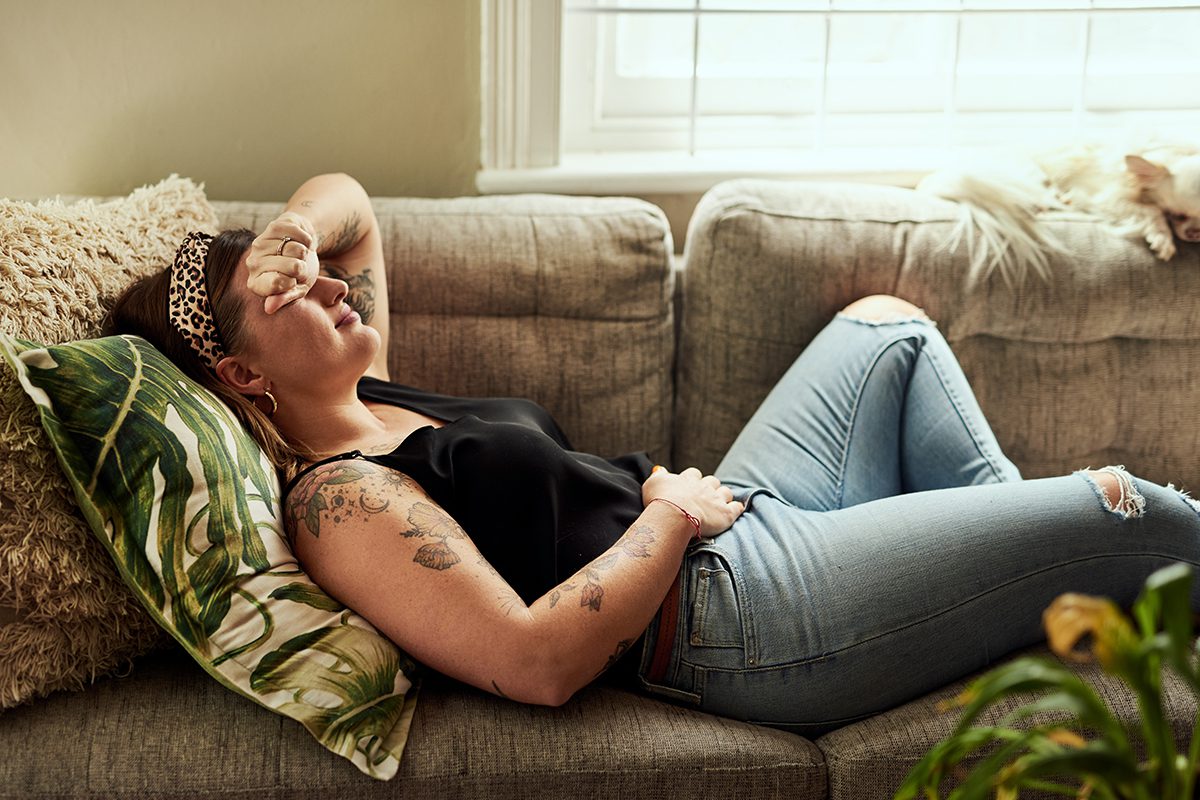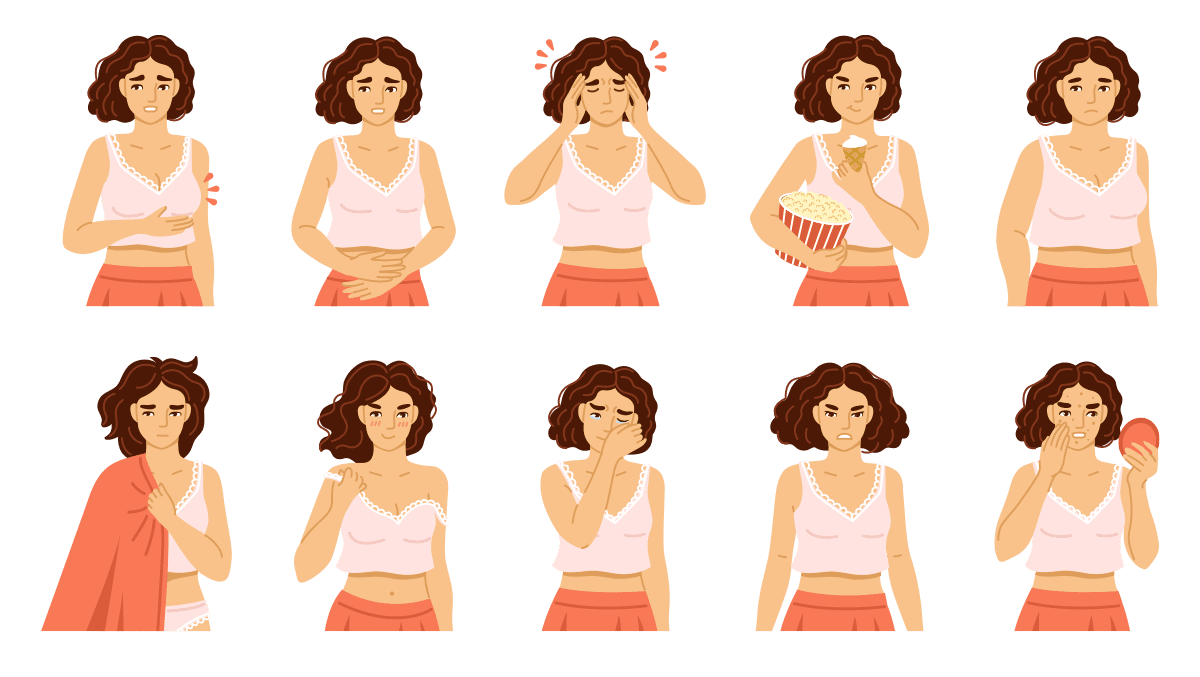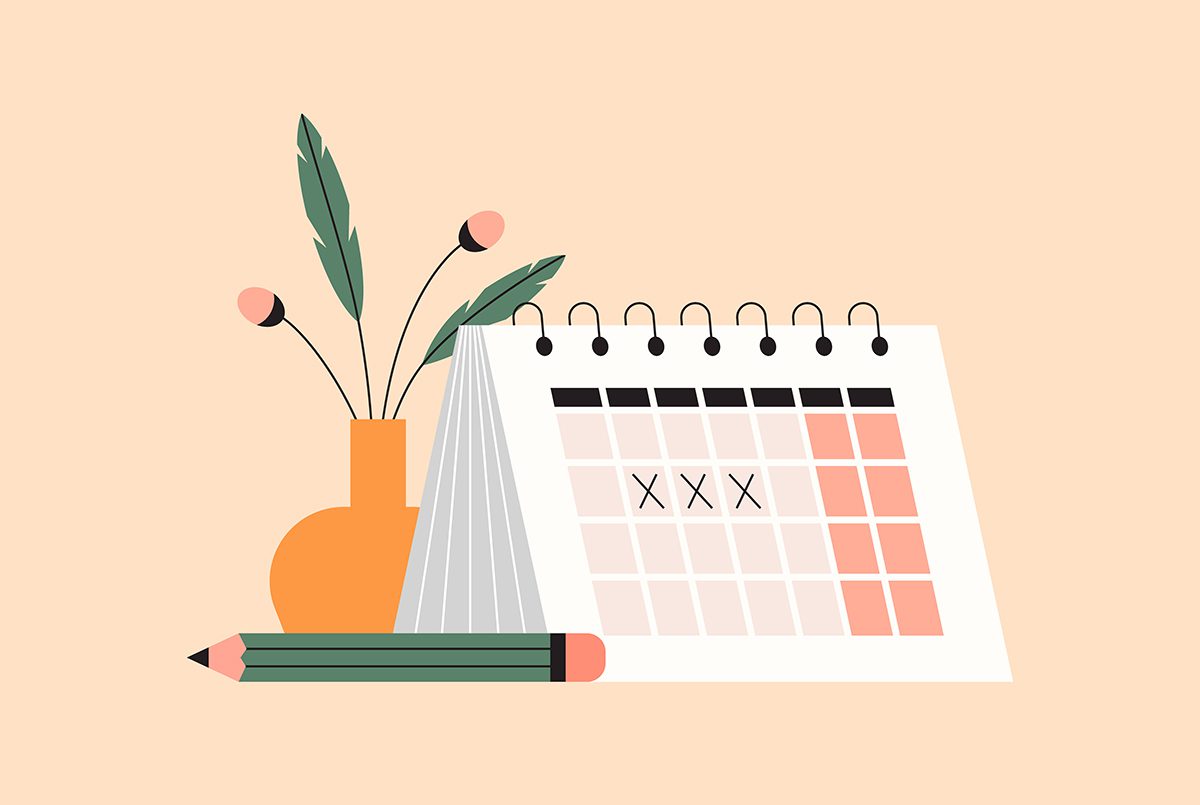Sobriety and the Menstrual Cycle
Managing Recovery with Fluctuating Hormones Requires Knowledge and Compassion.
Cramps, cravings, mood swings, bloating, exhaustion, headaches, poor sleep, acne breakouts, poor concentration – the list of symptoms that go with a woman’s menstrual cycle is seemingly endless, and none of them are good. For women the world over, the menstruating years are marked by near-constant hormonal fluctuations that can impact every aspect of life, and recovery is no exception.
In fact, recent studies have found that the surge and recession of cycle hormones can make women more susceptible to cravings, can enhance feelings of drug-induced euphoria and reward during certain phases of the month, and can make withdrawal feelings and the cravings seem more intense. And these susceptibilities don’t just occur during the premenstrual phase of the cycle. One study looking at the effects of the menstrual cycle on gambling found that gambling behaviors consistently increased during the ovulation phase – potentially indicating that women may have more sensitivity toward reward cues during this time.
A Breakdown of the Hormonal Phases
The monthly cycle consists of four general phases, during which the female body experiences fluctuations in estrogen and progesterone.
Menstrual
Estrogen and progesterone are relatively low and steady.
Follicular
Estrogen begins to rise; progesterone remains low.
Ovulation
Estrogen levels peak.
Luteal
Progesterone levels rise, peak and decline. Estrogen levels also decline.
Hormonal Fluctuations and Mental Health
Perhaps you’ve noticed that in the days leading up to the start of your period, you feel more tired than normal and you’d just like to sit on the couch all day and watch TV. Scientists believe that this is due to the dropping levels of estrogen that occur before menstruation. Estrogen is a hormone that plays an important role in mood regulation, and its ebb and flow can significantly impact energy levels and motivation.
At the same time, you may notice your temper is shorter and your anxiety is higher. You may be feeling bloated and grouchy and just kind of gross. All of these feelings – or none of them at all – may be a trigger for bursting into tears or having an angry encounter. This is because, during this time, progesterone is rising, which impacts anxiety and relaxation and can contribute to mood swings and emotional sensitivity.
Emotions, energy, attitude.
For most women, none of this information is necessarily “news.” Some women may have mild to no PMS symptoms, others may plan their lives (or have their lives planned) by their cycle. Some women go through seasons of difficult symptoms that come and go with age. But all women with functioning reproductive systems do experience the cycle to some degree. What’s important to remember is there are very real, very physical changes going on in your body each month that impact how you think, feel and interact with the world, and those changes can influence how you manage cravings, triggers and mental health episodes.
“Know Thyself” – How to Manage PMS Symptoms for A Strong Recovery
Here at Mare’s House, we talk a lot about the importance of “knowing oneself,” and managing PMS-related triggers is just one more reason why this is such a crucial part of our sobriety methodology. Taking the time to track your cycle – either through an app or with a day planner – will help you to see hormone-influenced behavior patterns. If you know where you are in your cycle, and you know that right before your period you have one or two days where you are weepy or angry or just want to indulge in all the feel-good cravings that can lead you in a dangerous direction, then you can take measures to protect yourself from temptation and from confrontation during this time.
During your sensitive days, self-care is critical:
-
Schedule time to yourself if you need it.
-
Book a pedicure or a coffee date with a close friend if you need it.
-
Send your mom to voicemail if you need to.
-
While you’re still feeling like yourself, commit to avoiding the people and places that are unhealthy for your recovery and plan on going to a 12-step meeting instead.
-
Be sure to get plenty of rest.
-
Eat a diet that is rich in vitamins and minerals. Deficiencies in vitamin D and B vitamins may make PMS symptoms worse.
During ovulation periods, remember that you may be more susceptible to feelings of reward when indulging in a craving. Use that knowledge to recognize the danger and turn your attention toward building healthy habits including:
-
Journaling
-
Regular Physical/Outdoor Activity
-
Meditation/Mindfulness
-
Social Support
If your PMS symptoms are overwhelming or unmanageable, some birth control methods have been found to alleviate symptoms. An article from Harvard.edu suggests birth control that contains the hormone drospirenone can help with PMS symptoms, but it’s important to discuss symptoms and options with your healthcare provider.
In Recovery, Women Need Advocates and To Advocate for Themselves
Historically, women’s health concerns have been shamefully underrepresented in medical studies. In fact, it’s only been twenty-five years since the National Institute of Health mandated that women and minorities be included in all government-funded medical studies. Women in pain are often marked as “dramatic,” with acute physical pain downplayed or dismissed altogether, even though studies indicate that perhaps because of our hormonal makeup, women are actually more sensitive to pain than men. Too often, doctors diagnose women with health concerns as having a mental illness or as being stressed. By and large, the medical industry today still works under the assumption that women are not telling the truth in regard to their bodies, and this is a serious injustice.
When it comes to women and addiction, things are not much better. Up until about two decades ago, studies about addiction were only conducted on men because there was a belief that any gender differences would be of little consequence. When the powers that be did begin studying women, they found that “women initiate drug use at an earlier age, use more addictive routes of administration, meet criteria for substance use disorders faster and enter treatment programs earlier than men…and although the prevalence of addiction appears to be greater in men than in women, the effects of short and long-term drug use can be particularly damaging for women.”
Understanding how substances and addictions affect women is critical both to recovery and to educating women on the dangers of experimentation in the first place. Studying the effects of the menstrual cycle on addictive behavior should be an important part of this research.
Mare’s House Sober Living – Come As You Are
The Mare’s House sober living house is a place where women can feel safe, supported, and heard – every day and every phase. We are supported by a female staff that understands the challenges specific to women in recovery. We know that women’s recovery involves more than posting a list of rules and chores on the wall and calling it good. Every day is different and every week may require some adjustment to your schedule, your diet, and your need for company or for quiet.
What we want you to know and understand is that it’s o.k.
It’s o.k. to be moody sometimes, or emotional. It’s ok to need a little extra care or a little extra space. We get it and we’re not here to judge, because we’re women too, and we have the same need for understanding and compassion. Our mission is to provide the safe space you need to build the self-awareness and healthy routines you need to succeed in recovery.
If you, or someone you love, is in need of support in order to overcome addiction, improve mental health, and build self-efficacy with the goal of full, independent living, contact us today. (858) 251-9409.








